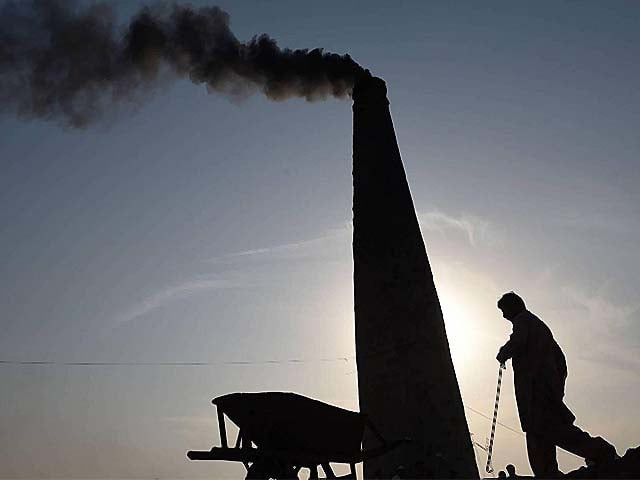Kilns continue to pollute twin cities
About 150 out of an estimated 227 brick kilns that exist between the two cities are operating on zigzag

Dodgy brick kiln owners actively contribute to air pollution as the twin cities’ administrations have so far failed to shut down furnaces that have not switched to eco-friendly methods.
It seems that the administrations of both cities spring to life once winter is on the horizon and do not raise eyebrows for the rest of the year or take significant action, as per sources indicating the lacklustre performance of the administrations in tackling clever ploys set by kiln owners to avoid liability.
Presently, in total about 150 out of an estimated 227 brick kilns that exist between the two cities are operating on zigzag. The ones who are not on the environmentally friendly method engage in a variety of smart tactics to avoid brushing with the law throughout the year.
Sources if a team from Rawalpindi comes to the kilns to take action, they escape liability by stating they fall in Islamabad’s jurisdiction and vice versa. Another is to demonstrate the usage of the eco-friendly zigzag technology to inspection teams, but in reality, resort to the much cheaper manual method once all inspections are completed.
“These are politically and administratively influential people [kiln owners] and any complaint against them results in hostility towards us, so why should we bother?” inquired Ejaz Hussain, a resident of Mandra, a town on the outskirts of Islamabad where several kilns are located.
Malik Mumtaz Ahmed, another resident of the locality, sharing another liability escaping tactic, said that the majority of the kilns operate at night when they know there is no fear of inspection.
“Despite several complaints to the administration regarding this and the toxic fumes these kilns emit at night, nothing ever happens,” Ahmed lamented. He said that he had stopped registering complaints ever since the owners started registering fake cases of theft against the residents of the town in retaliation. “Sometimes the inspection teams visit, but the kilns are closed in the morning so they cannot really do anything about it,” Ahmed informed the Express Tribune.
Seconding Ahmed, Hussain informed that the administration cannot take action on the residents’ complaints when every time they arrive the kilns are not operating. Irshad Ramay, a coordinator and air monitoring expert for an organization based in Rawalpindi that provides services to tackle pollution, while talking to The Express Tribune, said that the massive increase in smog in Islamabad and Rawalpindi is primarily down to brick kilns but other factors like smoke-emitting vehicles, garbage burning, and stone crushing machines should be considered as well.
Government initiatives
Highlighting the Rawalpindi Environmental Protection Department’s plans to make the air quality better this time around, Muhammad Amin Baig, Senior Research Officer at the department, said, “we have started monitoring kilns online through video software and if we spot toxic black fumes being emitted, our teams will seal the kiln.”
However, Baig did not shed light on any other plans the department might have for tackling the other factors contributing to the smog crisis.
Apart from the monitoring, representatives from the environmental department’s of both cities, informed the Express Tribune that to resolve jurisdiction issues and not fall into the trap of boundaries laid by owners the two cities’ teams would work in joint operations to get rid of the menace that is toxic fumes and would ensure that kilns without zigzag were closed up for good.
But they failed to provide a reason for when this would be put into action or why it had not been done before.
Published in The Express Tribune, October 22nd, 2021.



















COMMENTS
Comments are moderated and generally will be posted if they are on-topic and not abusive.
For more information, please see our Comments FAQ